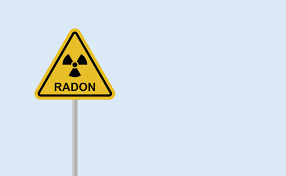Radon is a radioactive gas that comes from natural deposits of uranium and radium that is in soil and enters homes. Radon is particularly dangerous as it is tasteless, odorless and invisible to the eye.
Radon is also known as the number one cause of lung cancer death for those that are non-smokers. January is National Radon Action Month and the search for radon is prevalent in Utah as the state has the lowest rate of smoking in the nation yet the leading cause of cancer death in the state is lung cancer.
In fact, it is believed that radon causes approximately 14,000 to 21,000 lung cancer deaths per year throughout the United States. Surveys that are conducted by the Utah Department of Environmental Quality and Division of Radiation Control indicate that 20% of homes in Utah are at concentrations above the U.S. Surgeon General’s guidance when tested under methods that are typically employed during the sale of property.
Ryan Peterson of In & Out Inspections spoke on the importance on radon testing conducted in homes, stating that there are common misconceptions in the area when it comes to new homeowners and the possibility of radon within their home.
“The one misunderstanding I get is homeowners think we do not have any uranium mines, so we should not have any uranium in our soil and that is where radon comes from. Also, our soil is more permeable and this allows the radon to travel faster, getting to the foundation at a higher level,” Peterson stated.
According to the Utah Department of Environmental Quality, one in three Utah homes tested have radon levels that exceed what is considered safe and the average radon level of tested homes in Utah is 5.3, with 4 being the accepted level. The levels are measured in picocuries, which are a trillionth of a curie. Every 10 picocuries is equivalent to smoking a pack of cigarettes a day.
With these things in mind, the Southeast Utah Health Department is urging locals to be aware. They are working to increase radon testing in the community and encourage those that are interested in having their home tested to call the health department at (435) 636-1178.
Further information on radon, its effects and testing may be found by clicking here.

